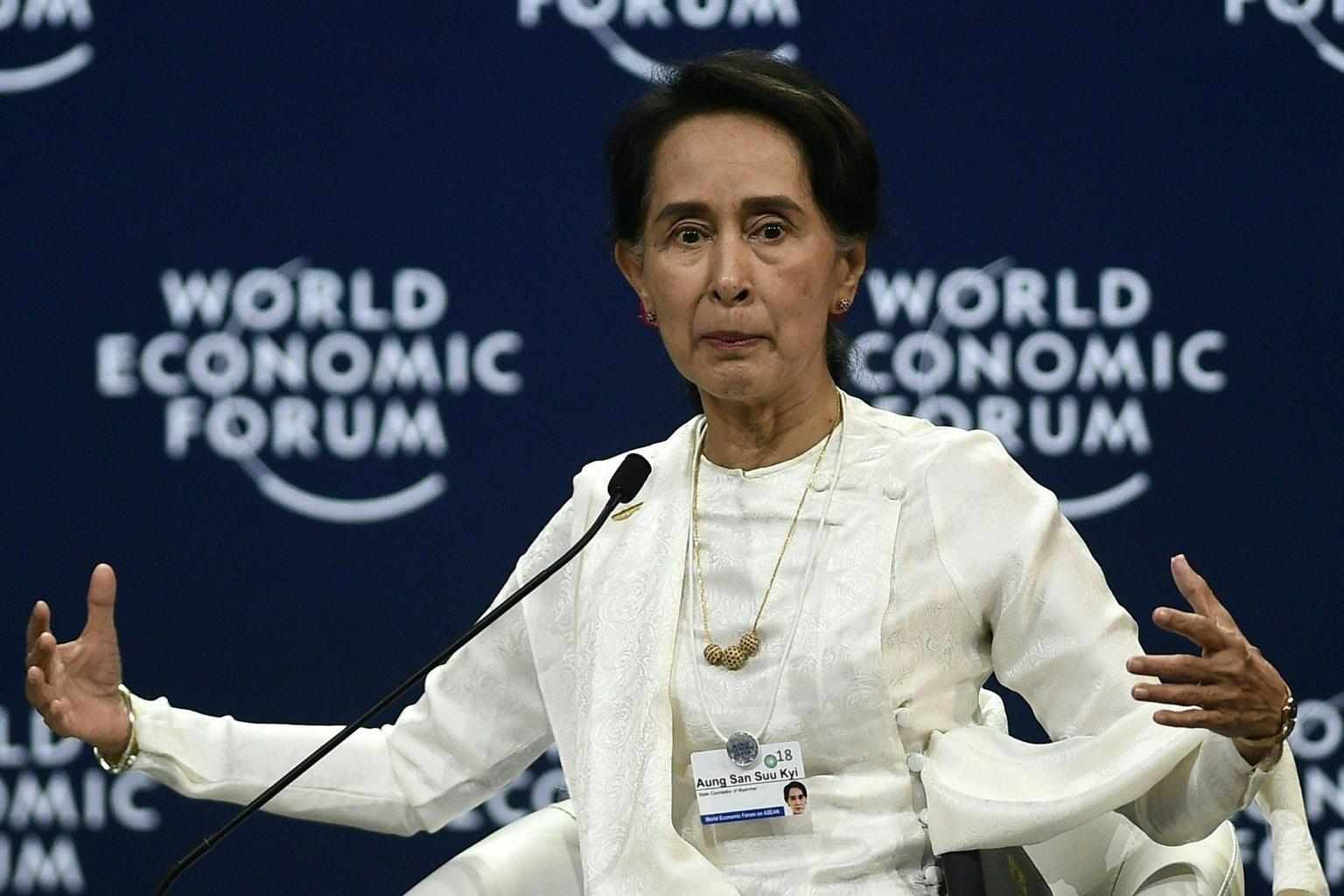Myanmar people have greater confidence now, says Aung San Suu Kyi at WEF
Sign up now: Get insights on Asia's fast-moving developments

Myanmar State Counsellor Aung San Suu Kyi speaks at the World Economic Forum on ASEAN at the National Convention Center in Hanoi, on Sept 13, 2018.
PHOTO: AFP
Follow topic:
HANOI - A standing ovation greeted then Myanmar opposition leader Aung San Suu Kyi in 2012 when she stepped into a World Economic Forum event in Bangkok - her first foreign trip in over two decades.
On Thursday (Sept 13), participants at the World Economic Forum (WEF) on Asean stood up politely as Myanmar's de facto leader entered a half-empty plenary hall in Hanoi and walked onto the stage.
Over the six years, her National League for Democracy Party has won a general election and grappled with a system that forces it to share power with its former ruling generals. Ms Suu Kyi has also become the face of a country making headlines across the world over mistreatment of the Muslim Rohingya minority.
Yet, asked by former Norwegian foreign minister and WEF president Borge Brende whether current circumstances were very different from what she anticipated, Myanmar state counsellor Suu Kyi said no.
"Politics is politics," she said. "People seem to think that politics in opposition are different from politics in office. Well, of course there are different sorts of responsibilities but in the end it's working with people. Unless you work with people, you cannot help a country to achieve sustainable development."
What she found "satisfaction" in however, was the fact that people, especially the young in Myanmar, have started believing more in themselves during the short run of her administration.
"Our people have greater confidence in themselves," she said. Civil servants, meanwhile, "feel that they can take initiative much more and that they will be listened to".
A week ago, United States vice-president Mike Pence had appealed to Myanmar to free imprisoned Reuters journalists Wa Lone and Kyaw Soe Oo. The two Myanmar nationals have each been sentenced to seven years' jail for breaching the Official Secrets Act, though critics say they were framed to punish them for exposing the extrajudicial killing of Rohingya Muslims by the military in Rakhine state.
Over 700,000 of the beleaguered minority have fled to neighbouring Bangladesh since August last year after a Rohingya militant attack in Rakhine state triggered a scorched earth military campaign there.
Asked by Mr Brende about the case of the Reuters journalists, she replied: "If anybody feels there has been a miscarriage of justice I would like them to point it out.
"And I wonder whether very many people have actually read the summary of the judgement, which had nothing to do with freedom of expression at all. It had to do with the Official Secrets Act."
But she added that the two journalists "have every right to appeal the judgement and point out why the judgement is wrong if they consider it wrong".
Throughout the half-hour conversation with Mr Brende, Ms Suu Kyi stayed clear of talking about her party's chances in the next general election, which is just two years away.
"We just have to makes sure that we make enough progress between now and then for the people to decide that they can safely continue to give us the responsibility to look after our country," she said.
Asked what she felt were the most important things to achieve before the polls, she said: "To give the people an opportunity to learn more about what kind of role they can play in building up peace and prosperity in the country."

